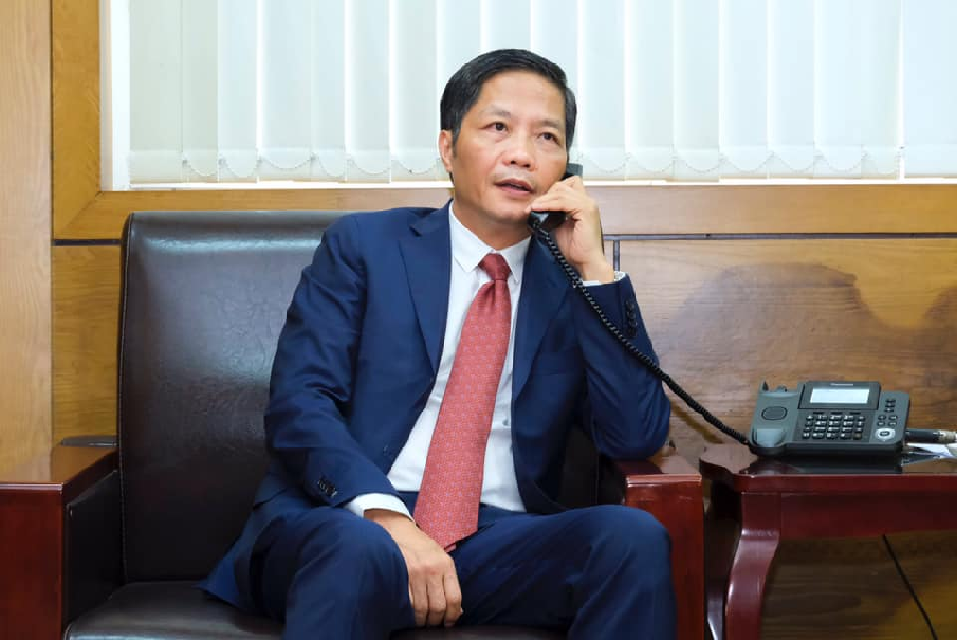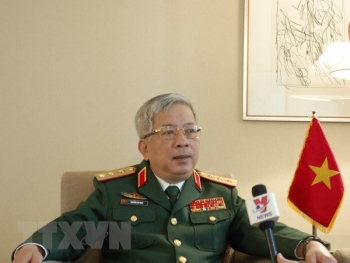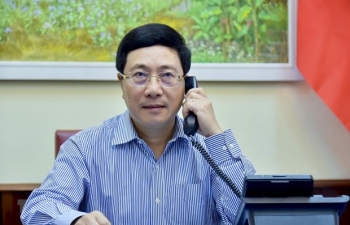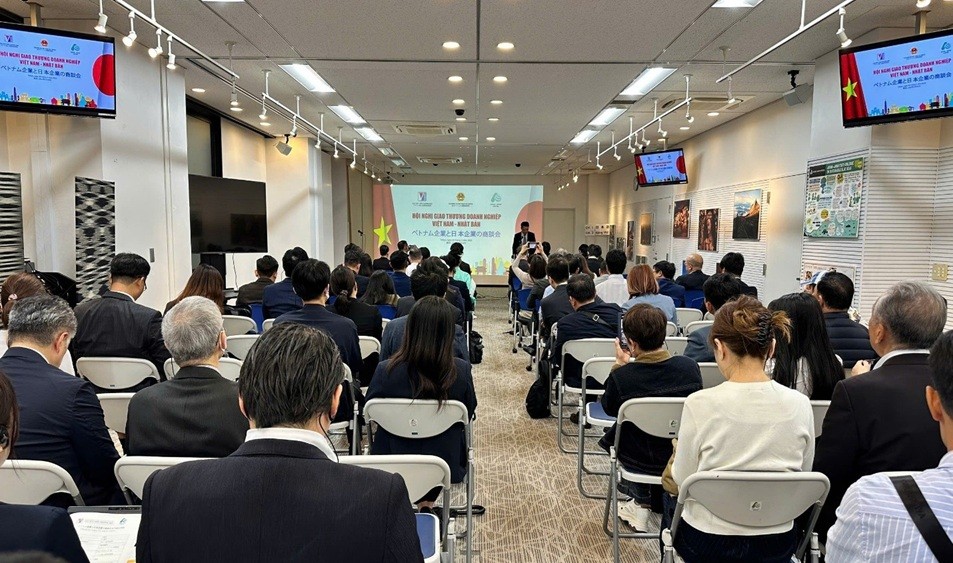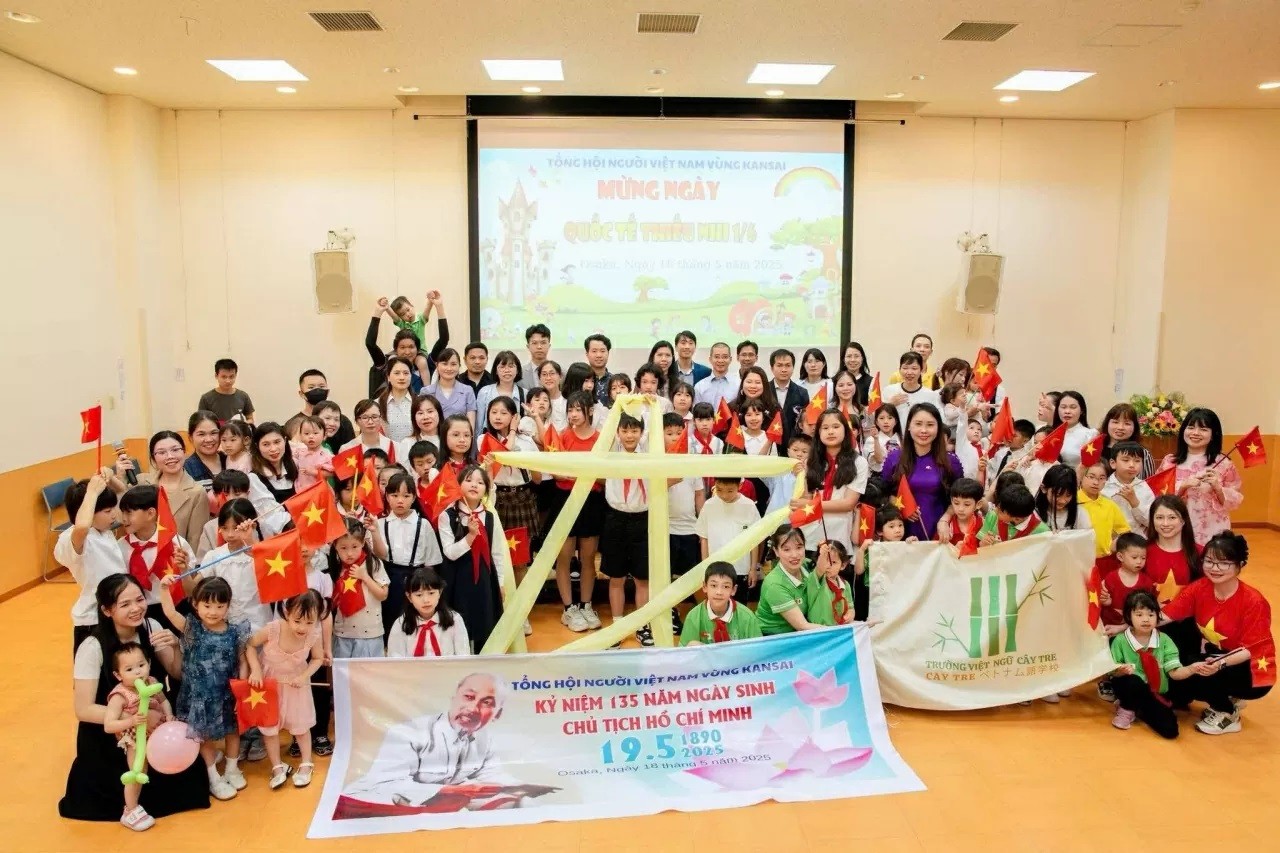New Japananese PM Suga mulls October visit to Vietnam
| Vietnam, Japan eye stronger trade ties | |
| Vietnam, Japan hold deputy defence minister-level phone talks | |
| Vietnam, Japan discuss COVID-19 fight, economic cooperation |
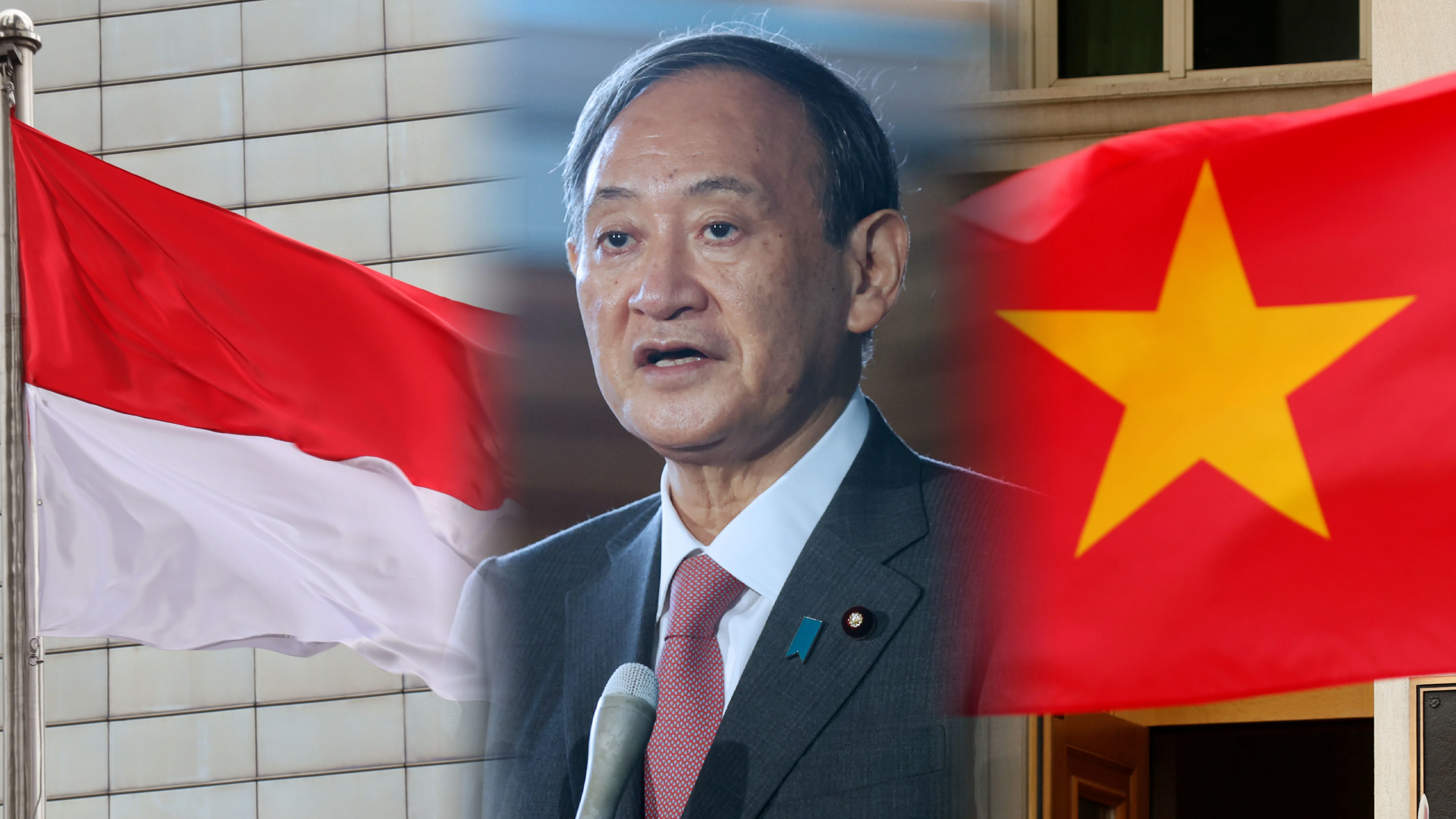 |
| Suga plans to visit Vietnam and Indonesia in mid-October in his first overseas trip since taking office. Photos by Reuters and Nikkei |
Japanese Prime Minister Yoshihide Suga is planning to visit Vietnam and Indonesia around mid-October in his first official overseas trip since taking office earlier this month, Kyodo News cited government sources as reporting on September 30.
If the trip goes ahead, the premier is expected to hold talks with Vietnamese Prime Minister Nguyen Xuan Phuc and Indonesian President Joko Widodo.
Suga will make a final decision on whether to travel after examining the coronavirus situation at home and in the two Southeast Asian countries, where the spread of infections has remained relatively stable compared with other countries such as the United States, according to the sources.
The plan to visit the Association of Southeast Asian Nations members comes as Japan seeks to strengthen ties with countries in the region amid growing tensions between its main security ally the United States and its biggest trading partner China, over trade, security and other issues.
Amid the spat, Beijing is aiming to boost its clout among ASEAN members, but some have increasingly been at odds with China over jurisdiction in the South China Sea while others have seen as problematic its hardline approach to Taiwan.
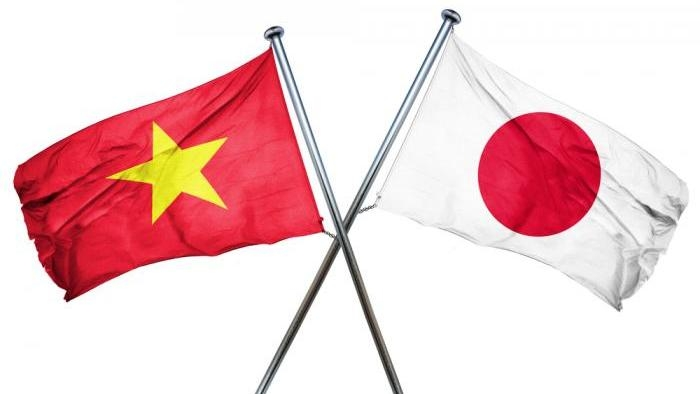 |
| If the trip goes ahead, Prime Minister Yoshihide Suga is expected to hold talks with his Vietnamese counterpart Nguyen Xuan Phuc. |
Chief Cabinet Secretary Katsunobu Kato said face-to-face exchanges between leaders play a key role in diplomacy.
He also reiterated that Japan seeks to promote the vision of a free and open Indo-Pacific, including the maintenance of the rule of law, freedom of navigation and overflight, and peaceful settlement of disputes, by building a stable relationship with its neighbors.
"The diplomatic environment surrounding Japan is becoming harder to foresee and control, given the growing national particularism and the U.S.-China tensions...We would like to strategically and steadily promote the vision of a free and open Indo-Pacific by working with partners sharing the same values," he told a press conference.
Vietnam and Indonesia were also the first overseas destinations for former Prime Minister Shinzo Abe after he assumed the premiership for the second time in December 2012. Abe pursued closer economic and security ties and Suga is expected to follow suit after pledging to carry forward his predecessor's policy legacy.
After becoming prime minister on Septemeber 16, Suga has held bilateral phone talks with countries including the United States, the Republic of Kora, China and Russia, but has also been seeking to meet leaders in person.
Known for their friendly ties with Tokyo, Vietnam is this year's ASEAN chair, and Indonesia is a member of the Group of 20 major economies.
Vietnam-Japan ties likely to advance
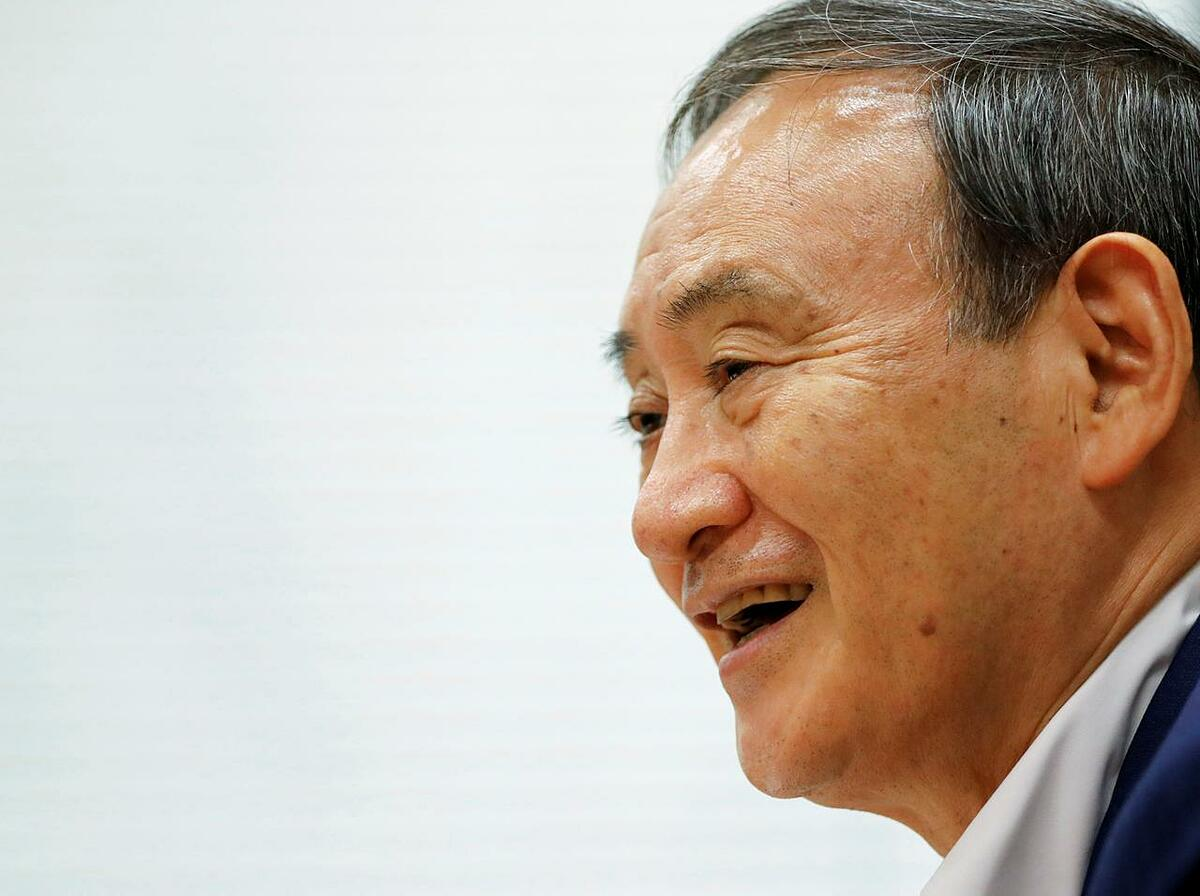 |
| Prime Minister Yoshihide Suga, then Japan’s top government spokesman, smiles during an interview in Tokyo, Japan, August 26, 2020. Photo by Reuters/Issei Kato. |
Experts say PM Suga will continue Japanese support for open seas and economies, bringing Japan and Vietnam closer.
"There will be continuity in the government's commitment to the U.S.-Japan alliance and a free and open Indo-Pacific (region)," said Christina Davis, professor of government and director of the program on U.S.-Japan Relations at Harvard University, was cited by VnExpress as saying.
"Japan has shown increasing leadership in the region to support open seas and economy against challenges on multiple fronts. This will bring Japan and Vietnam together in closer partnership," Davis said.
She said she believes PM Suga will continue to support the right of free navigation in the South China Sea (Bien Dong Sea), and for international seas to remain open for Japan and Vietnam to have communication between their militaries.
"Also, a diplomatic strategy for supporting international law is very important," she said.
Many other experts have also said Japan will continue giving priority to its Indo-Pacific strategy.
Yoshikazu Kato, currently Adjunct Associate Professor at the Asia Global Institute, University of Hong Kong, said the new administration of Japan will definitely be committed to its Indo-Pacific strategy.
"Japan is aware that it has initiated this strategy and it would be beneficial for all stakeholders including Vietnam who has been positively engaged in the regional rules and values-based cooperation while confronting serious geo-political challenges with China," he said.
Kato also said that irrespective of the victor in the upcoming presidential election in the U.S., Japan and the U.S. will aggressively promote the Indo-Pacific region to hedge against uncertainties of China’s rise.
Sheila Smith, senior fellow for Japan studies at the Council on Foreign Relations in the U.S., said under Suga, the Indo-Pacific vision "will likely continue to be a Japanese foreign policy priority."
"There is a broad consensus on this within government, but also among the Japanese people. Overall I anticipate little change from what Japan is pursuing at the moment," she said.
Long-term strategy
Stephen Nagy, Senior Associate Professor at the Department of Politics and International Studies, International Christian University, Tokyo, said a free and open Indo-Pacific vision is part of Japan’s long term strategy to inculcate itself in the region through economic and infrastructural connectivity as well as diplomatic integration.
"This goal has not changed with Suga and it won’t change in overall strategic objectives. Where we might see change is in the peripheral details such as partners, and specific regional initiatives as resources will be scarce in a post Covid-19 recession."
Regarding Japan’s next moves to deal with Covid-19 in association with Vietnam, Davis of Harvard University said that alongside many security worries about China, the pandemic has made many countries worry about their over-dependence on Chinese production.
In such a context, Japan was very eager to diversify its supply chains, she said.
"We do hear quite a bit about Japan wanting to have diversification, and that's where Vietnam and Southeast Asia has long been its important partners. We also see the Japanese have been trying to look at new investments in Vietnam, continuing the strong relationship with Thailand, building partnerships in India, and that's an area for cooperation," she said.
On September 7, Vietnamese PM Nguyen Xuan Phuc said Vietnam’s market was big enough for ambitious business investment plans, as well as the business restructuring and supply chain transformation strategies of Japanese investors.
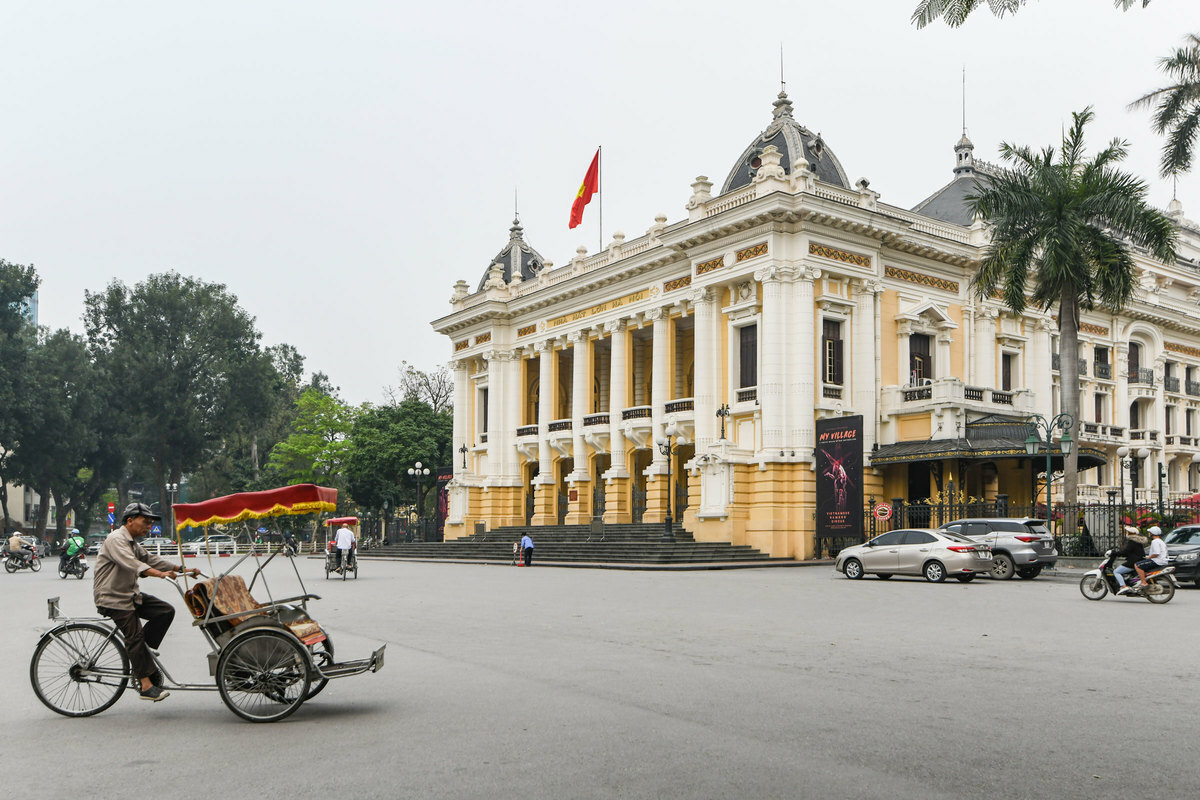 |
| The Hanoi Opera House in Hanoi. Photo: VnExpress |
His statement came around two months after the Japan External Trade Organization (Jetro) announced 15 Japanese firms had registered to shift their production from China to Vietnam.
Davis felt travel was another area for increased cooperation between Japan and Vietnam.
She said it was interesting that countries like Vietnam and Japan, which have had stronger policies to contain the pandemic, were "opening up to travel for some regional partners, and so we can hope that maybe Vietnam and Japan can restore connection for travelers who feel comfortable...."
Most recently, a Hanoi-Tokyo flight, Vietnam's first international commercial flight after six months of suspension over the Covid-19 pandemic, had carried over 100 passengers to Japan on September 19./.
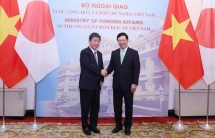 | Vietnam, Japan agree to further enhance political trust Deputy Prime Minister and Foreign Minister Pham Binh Minh and Japanese FM Motegi Toshimitsu expressed their delight at the impressive development of the Vietnam – ... |
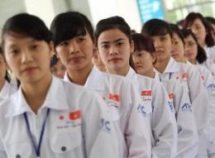 | Vietnam, Japan sign MoC on specific skilled workers Vietnamese now have a golden opportunity to get a job in Japan, as the country is facing a severe labour shortage. |
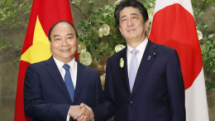 | Vietnam, Japan to bolster labor condition monitoring Vietnam and Japan agreed Monday to tighten up the monitoring of labor conditions for Vietnamese workers, as Tokyo opens the door to more foreigners amid ... |
Recommended
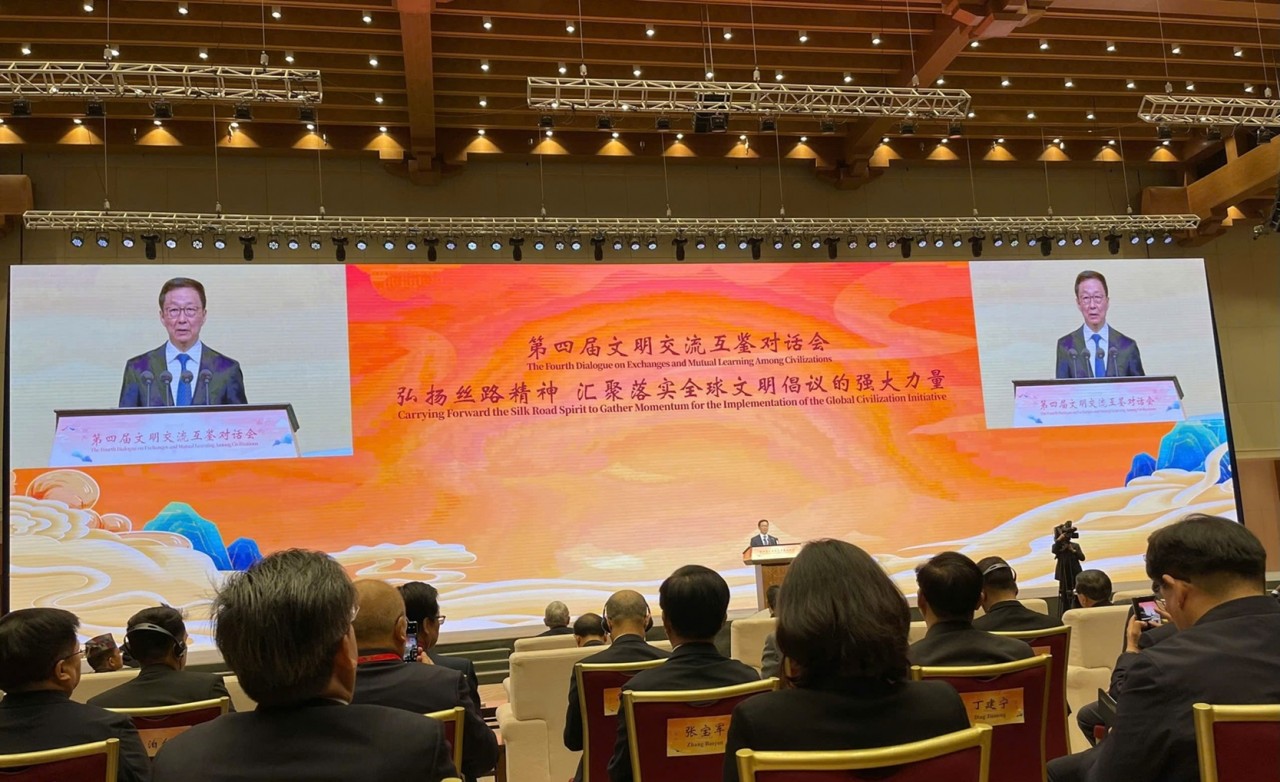 Friendship
Friendship
VUFO Attends Fourth Dialogue on Exchange and Mutual Learning among Civilizations
 Friendship
Friendship
COPI (US) Provides Free Medical Check-Ups for Nearly 1,000 People in Quang Nam
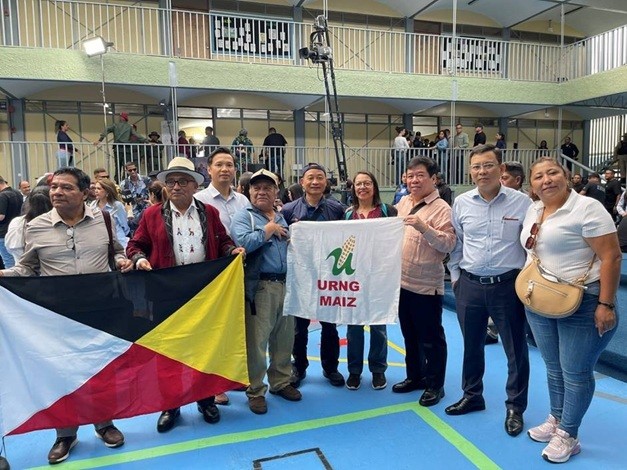 Focus
Focus
Strengthen Solidarity and Friendship Between Vietnam and Venezuela
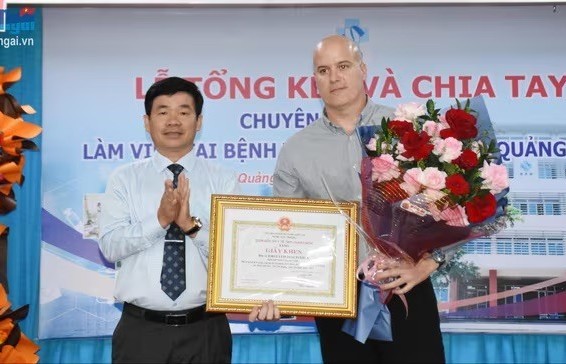 Friendship
Friendship
Quang Ngai Recognizes Cuban Health Experts' Contributions to Mother and Child Care
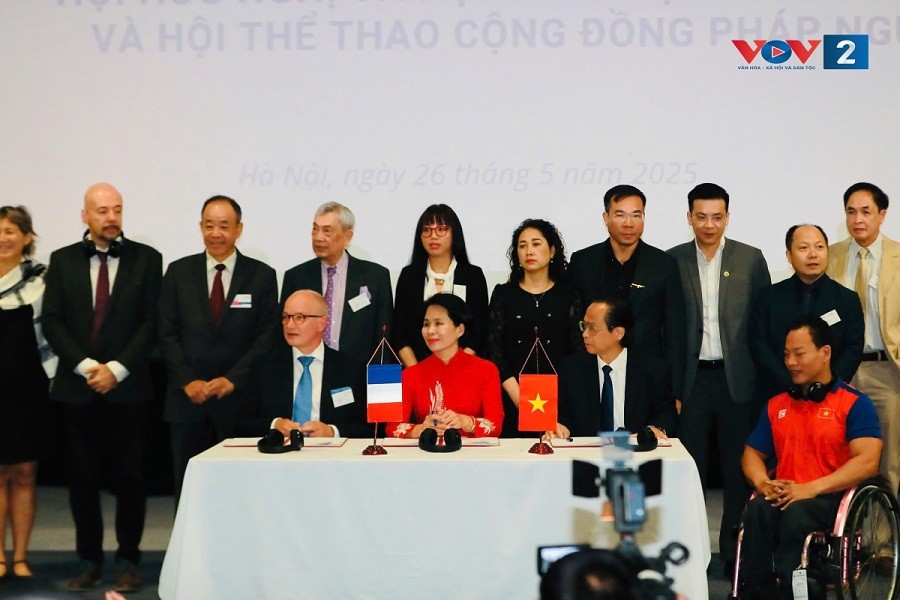 Friendship
Friendship
Vietnam, France Promote High-performance Sports
 Friendship
Friendship
Concert In Hanoi Highlights Vietnam - Azerbaijan Ties
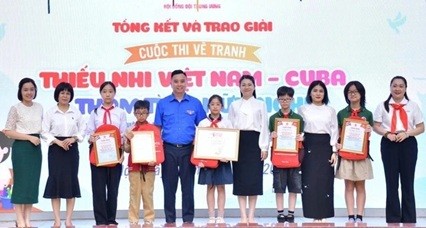 Focus
Focus
"Vietnamese - Cuban Children, Deep Friendship" Painting Contest Announces Winners
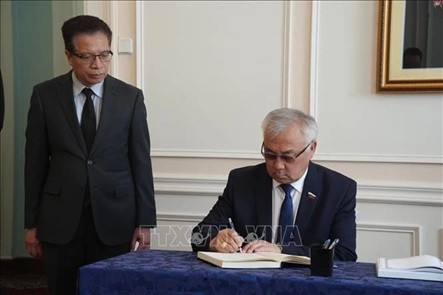 Friendship
Friendship

